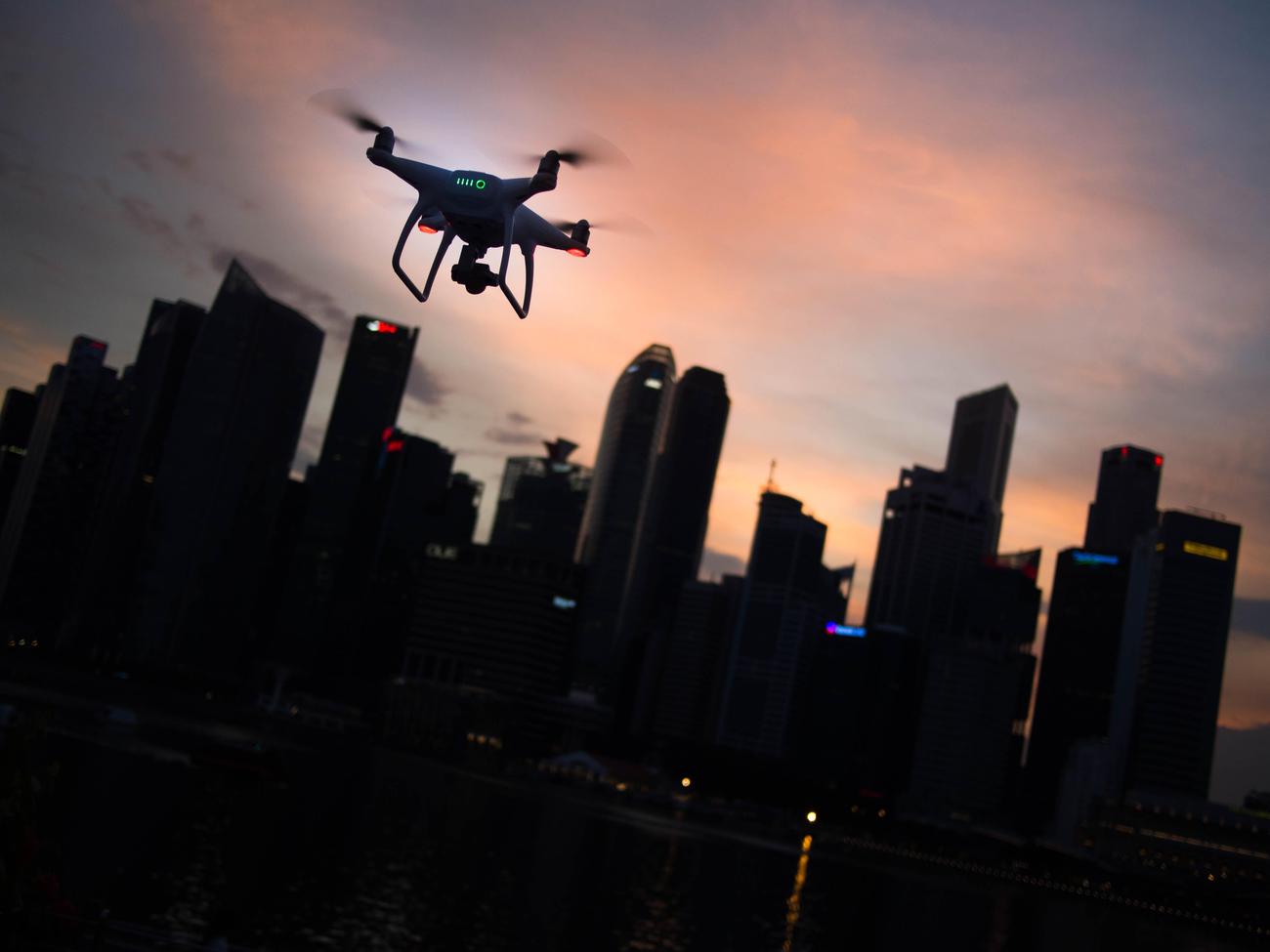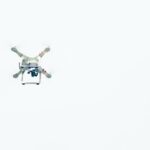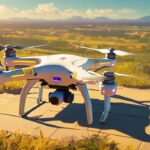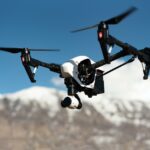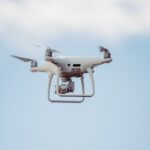Welcome to the world of drones, where innovation soars and regulations evolve. In this article, we dive into the latest updates in drone regulation for 2023, shedding light on the measures being taken to ensure safety and address the challenges faced by this rapidly growing industry. Whether you’re an avid drone enthusiast or a policymaker looking to navigate the ever-changing landscape, join us as we explore the intriguing developments in drone regulations and their potential impact on the future of aviation.
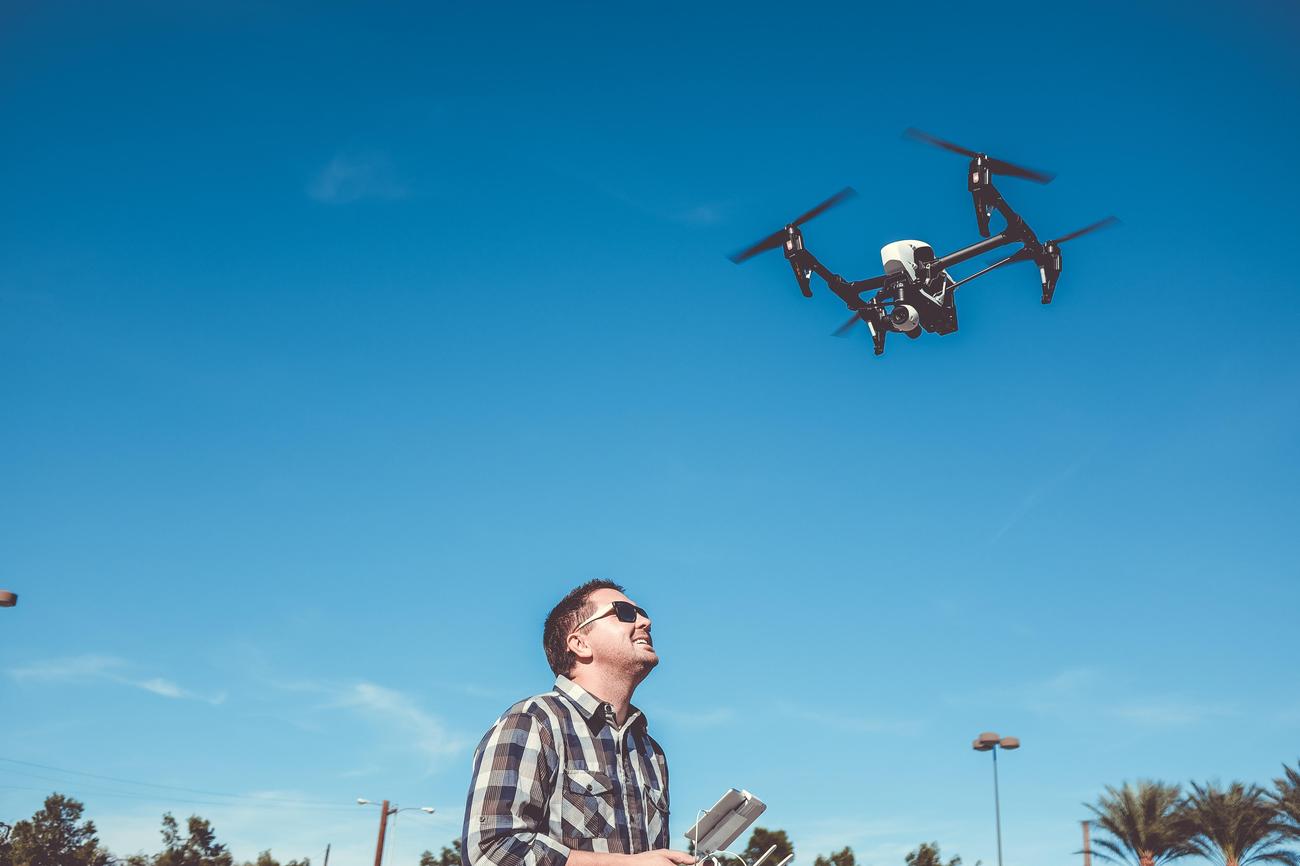
Drone Regulation Updates 2023: Ensuring Safety and Navigating Challenges
As we enter the year 2023, the drone industry is poised for significant regulatory changes that aim to enhance safety and address the evolving challenges in this ever-growing field. With the implementation of new drone regulations in various regions, it becomes crucial for both drone enthusiasts and industry professionals to stay informed about the latest updates and requirements. In this article, we’ll explore the key drone regulation updates for 2023 and discuss how they contribute to ensuring safety while navigating the challenges faced by policymakers and drone operators alike.
European Union: Implementing New Regulations for Drones
In April, a new regulatory package for drones will enter into force in the European Union (EU), with the applicability starting from January 26, 2023. These regulations, issued by the European Union Aviation Safety Agency (EASA), will introduce technical specifications to help the industry and competent authorities prepare for implementation. The aim is to harmonize drone operations across the EU, ensuring consistent safety standards and facilitating the seamless integration of drones into airspace.
“By implementing these new regulations, the European Union seeks to create a uniform and safe drone ecosystem, fostering innovation while safeguarding the interests of all stakeholders involved.”
Indonesia: Directorate General of Civil Aviation Takes the Lead
In Indonesia, the Ministry of Transportation and Directorate General of Civil Aviation (DGCA) regulate drone operations. As of 2023, there are no specific requirements for mandatory aviation liability insurance for drones in Indonesia. However, it’s important to note that there are still restrictions in place, including limitations on flying altitude and proximity to airports.
If you are a drone operator in Indonesia, it is crucial to familiarize yourself with the regulations set forth by the DGCA. By adhering to these guidelines, you not only ensure compliance but also contribute to the overall safety and responsible use of drones.
“Understanding and adhering to the regulations set by the Directorate General of Civil Aviation is essential for drone operators in Indonesia, as it reinforces the commitment to safety and responsible drone use.”
United States: Navigating Federal and State Laws
In the United States, drone regulations involve both federal and state laws. While state and local governments may not regulate aviation safety or airspace efficiency, they do have the authority to regulate certain aspects of drones outside these fields. However, it’s important to note that state or local laws conflicting with Federal Aviation Administration (FAA) regulations will be preempted.
The FAA has released an updated fact sheet in 2023, covering state and local regulation of unmanned aircraft systems (UAS). This resource provides clarity on the boundaries of authority between federal and state entities, aiming to streamline drone operations and avoid conflicts. For public safety officials, the FAA’s Drone Response Playbook serves as a valuable resource to determine authorized and unauthorized drone operations, enabling appropriate actions to be taken.
“Understanding the interactions between federal and state laws in the United States is crucial for drone operators and policymakers alike, as it facilitates a coherent and lawful drone ecosystem while addressing the unique challenges faced by each jurisdiction.”
Global Perspectives: Navigating the Varying Drone Regulations
Drone regulations can vary significantly from one country to another, adding complexity for international drone operators. Dentons, a global law firm, offers a comprehensive global guide to drone regulatory laws. This invaluable resource provides insights into drone regulations across various nations, enabling operators to navigate the nuances and comply with the specific requirements of each jurisdiction.
“Drone operators venturing into international airspace must take the time to understand the regulations specific to the countries they wish to operate in, ensuring compliance and fostering a culture of safety and responsible drone use.”
Staying Informed: Industry Resources and Updates
Keeping abreast of the latest drone regulation updates is vital for drone enthusiasts, professionals, and policymakers. Industry news websites like UAV Coach and Drone Industry Insights offer valuable insights and updates on regulatory changes, ensuring that interested parties are well-versed in the ongoing developments in the drone industry. By staying informed, stakeholders can adapt to new regulations and actively contribute to the safe and responsible integration of drones into various sectors.
“Equipping oneself with the latest information and insights regarding drone regulation updates allows stakeholders to stay ahead of the curve, enabling them to safely navigate the challenges posed by an ever-changing regulatory landscape.”
In conclusion, the drone regulation updates for 2023 demonstrate a collective effort to ensure the safe integration of drones into airspace while addressing the unique challenges faced by policymakers, operators, and regulators. By proactively staying informed, adhering to regulations, and fostering a culture of safety, we can collectively contribute to the growth and responsible use of drones in various industries.
[EASA]: European Union Aviation Safety Agency
[DGCA]: Directorate General of Civil Aviation
[FAA]: Federal Aviation Administration
[UAS]: Unmanned Aircraft Systems
In the year 2023, the world of drones will witness groundbreaking advancements and incredible technological feats. Are you ready to discover mind-blowing Drone Facts 2023? Prepare to be amazed as you navigate through a captivating journey of the latest innovations and astonishing capabilities. Click here to unlock the secrets of the future of drones: Drone Facts 2023
FAQ
Q: When will the new regulatory package for drones come into force?
A: The new regulatory package for drones will enter into force in April and become applicable as of January 26, 2023.
Q: Who is responsible for preparing technical specifications for the implementation of the new drone regulations?
A: The European Union Aviation Safety Agency (EASA) is preparing technical specifications to allow the industry and competent authorities to prepare for implementation.
Q: Who regulates drones in Indonesia?
A: In Indonesia, the Ministry of Transportation and Directorate General of Civil Aviation (DGCA) regulate drones.
Q: Can state and local governments in the United States regulate drone operations?
A: State and local governments in the United States may not regulate in the fields of aviation safety or airspace efficiency, but they can regulate outside those fields. State or local laws conflicting with FAA regulations will be preempted.
Q: Where can I find resources on drone regulations for public safety officials?
A: The FAA has released the Drone Response Playbook for Public Safety, which is a resource for public safety officials to determine authorized and unauthorized drone operations and take necessary actions.
- Georgia Platform: A Southern Strategy, 1850s - March 31, 2025
- How many weeks is 40 days: Quick Conversion Guide for Accurate Results - March 31, 2025
- How many feet is 300 meters? 984 Feet: Understand Length Conversions Easily - March 31, 2025
